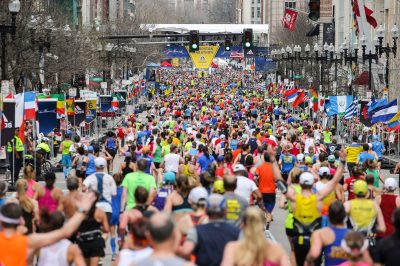As one of the oldest and most prestigious marathons in the world, the Boston Marathon has captured the hearts and minds of athletes and spectators alike for over a century. With its rich history and storied traditions, this iconic race has become a symbol of endurance, determination, and the human spirit. In this blog post, we will take a trip down memory lane to explore the fascinating history of the Boston Marathon, from its humble beginnings to its current status as one of the most renowned races in the world.
The Boston Marathon traces its roots back to April 19, 1897, when the first edition of the race took place. The idea for the marathon was inspired by the success of the marathon event at the first modern Olympic Games held in Athens, Greece in 1896. A group of Boston Athletic Association (BAA) members, led by BAA president Thomas J. Burke, decided to organize a similar race in Boston, making it the oldest continuous marathon in the world.
The inaugural Boston Marathon had a modest start, with just 15 runners participating in the race. The course was set from the suburb of Ashland to the heart of Boston, covering a distance of approximately 24.5 miles (39.4 kilometers), which was later standardized to the now-famous 26.2 miles (42.2 kilometers) in 1908. The winner of the first Boston Marathon was John J. McDermott of the United States, who completed the course in 2 hours, 55 minutes, and 10 seconds.
Over the years, the Boston Marathon grew in popularity and significance, attracting top athletes from around the world. In 1966, Roberta “Bobbi” Gibb became the first woman to complete the Boston Marathon, despite initially being denied an official entry due to the race’s male-only policy. Her pioneering run paved the way for future female athletes, and in 1972, the Boston Marathon officially opened its doors to women runners.
The Boston Marathon has also witnessed numerous unforgettable moments and remarkable achievements. In 1946, Stylianos Kyriakides of Greece won the race and dedicated his victory to his war-torn country, which was still recovering from World War II. His inspiring story helped raise awareness and funds for humanitarian relief efforts in Greece, and he remains a beloved figure in the history of the Boston Marathon.
Another unforgettable moment in the race’s history came in 2013 when tragedy struck during the marathon. Two bombs were detonated near the finish line, resulting in several deaths and injuries. Despite the horrific incident, the marathon community demonstrated unwavering resilience and solidarity, coming together to support the victims and rebuild the race. The following year, the “Boston Strong” slogan became a rallying cry, and the race saw an unprecedented outpouring of support from participants and spectators alike.
In recent years, the marathon has evolved into one of the most prestigious marathons in the world. It attracts top elite runners, as well as thousands of participants from all walks of life who aim to challenge themselves and conquer the demanding course. The Boston Marathon also holds a special place in the hearts of Bostonians and the wider running community, serving as a symbol of resilience, courage, and determination.
In conclusion, the history of the Boston Marathon is a testament to the enduring spirit of human achievement. From its humble beginnings to its current status as one of the most prestigious marathons in the world, the marathon has captivated the world with its storied traditions, remarkable achievements, and unforgettable moments. As we look ahead to the future, we can be certain that this legendary race will continue to inspire and captivate generations of runners and spectators alike.
Learn more about my running coaching, and what to look for in a running coach. Follow me on Instagram.






